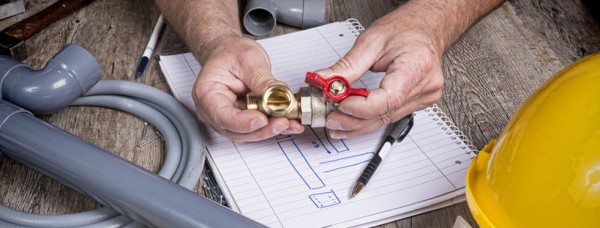
Properly functioning plumbing is an absolute necessity. A house may be accurately described as an insulated box supplied with water and electricity, and this means that properly functioning plumbing is essential.
Any maintenance issue with the pipes, water heater or plumbing fixtures may provide an excellent occasion to upgrade to a more modern system. The simple reasons of energy savings and efficiency might also lead to the same decision. In either case, it is important to carefully consider whether an upgrade or a retrofit is worth it. Consider the conditions, balance the costs against the benefits, and then decide upon the course of action that makes the most sense for your home.
Updating the plumbing system on a residence may require a substantial investment of time and money. As with any capital investment of this nature, there are times when it is more effective to take some actions instead of others. A plumbing problem may be an occasion for a complete retrofit or for targeted repairs. In some cases it may simply be more cost effective to work around the problem or to shut off the faulty system completely.
The differences are found entirely in the nature of the property, its intended use , and the expense of the repairs contemplated. This sort of cost-benefit analysis might come down to the calculation of pennies, or there might be an enormous deal-breaking issue that demands immediate attention. Sadly, the funds available may sometimes dictate the choices made.
The first rule of upgrading plumbing is that if it is not broken, it might be a good idea to not try to fix it. Plumbing systems were well worked out a long time ago, and for the most part they function the exact same way they always have. There have been few fundamental improvements in recent years, and the technology remains extraordinarily well tried, tested and true. It is quite common for plumbing systems over a century old to remain in regular use. However, when they do break, modern plumbing systems will have massive advantages in cost, efficiency and ease of use.
The severity of the plumbing problem that warrants a replacement has lessened with the rise in the cost of utilities, as it may be less expensive to fix a problem like a slow leak than to let it raise the monthly utility bill. Old plumbing may be functional, but it is neither as durable nor as easy to repair as modern pipes and fixtures.
The materials used today are lighter, the installation tends towards greater sanitation, and there are some features that were not previously available. For example, the modern era tends to be much more interested in things like water conservation. This means that there may be surprising benefits to system replacement.
There may have be ancient leaks in the pipes that were going undetected for years, or the insulation may have degraded on a water heater and caused it to waste electricity. Older plumbing systems are also heavy, as they were usually made of cast iron, copper or other metals. The weight and mass represented by an older plumbing system can be in itself detrimental to the health of the house. New systems, made out of PVC and other synthetic materials, tend to put less stress on a facility.
When considering an upgrade or a retrofit, it may be a good idea to check with the local government to see if there are programs that might help to upgrade the plumbing or to defray the costs.
Charlie Teschner started MESA Plumbing, Heating, and Cooling in 1982. Charlie has a journeyman and master plumber’s license. He was raised with a strong work ethic and he now applies those values to tasks such as Longmont, CO heating repair.














